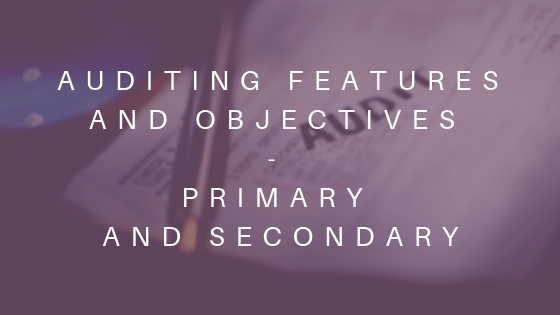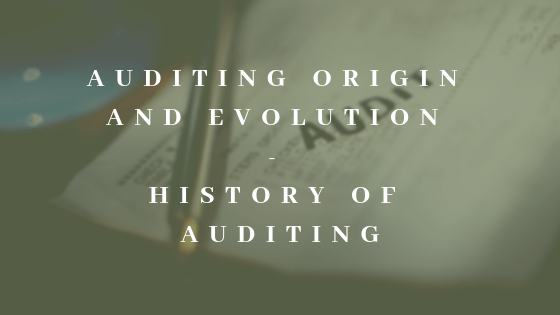In this tutorial, we will learn about the management auditor and qualities of a management auditor not prescribed by law also hence, and a company is free to take its own decision regarding the appointment and selection of a management auditor.
The board of directors or the shareholders of the company can be appointed of practicing Chartered Accountants to undertake the management audit. Such a decision will, of course, depend upon the circumstances of a particular case. It is argued that the internal auditor is fit enough to conduct a management audit and is familiar with the management procedures and performance.
Further, it is also suggested that management audit work should be entrusted to the O&M (organization and method study) personnel with an analytical bent of mind regarding the organizational structure and methods of operations. Much will depend upon each case circumstances, but a note should be made of the technical efficiency needed for conducting the management audit.
QUALITIES OF A MANAGEMENT AUDITOR:
No specific qualities can be narrated for a management auditor. As his task is related to investigating and appraising the business objectives about the activities of the management, he must be capable enough to put all his professional skills in the task of evaluating and advising the board members on the various aspects of all operations. Some of the qualities of a management auditor are as follows:
- He should have the ability to understand the purposes and problems of the organization.
- He should have a good understanding of the nature and objects of the organization and also of its area of operations.
- He should be competent enough to assess the progress of the organization.
- He should have a thorough knowledge of different internal control devices and modern techniques of job analysis.
- He should know the techniques and devices of making effective and efficient use of modern office equipment, including flow charts, work schedules, computers, etc.
- He should see that the plans as prepared by the management are suitable and practicable to achieve the objectives set forth by the administration.
- He should be conversant with the nature of production activities in the organization.
- He should have the ability to assess the adequacy and efficacy of controls in use in the organization.
- He should be well familiar with the personnel procedures and the personnel development program to ensure the proper allocation of duties has been made to the staff aptitudes.
- He should be humble pleasing, and cooperative.
- He should be conversant with different types of laws relevant to the functioning of a business concern.
- He should be an expert in drafting various reports to be presented to the management.
WHAT IS PROPRIETY AUDIT:
‘Kohler’ has defined propriety as that which meets the test of public interest commonly accepted customs and standards of conduct and mainly as applied to the professional performance, requirements of government regulations and professional codes. A propriety audit would mean whether the transactions have done conform with established rules, principles, and some established standards. The propriety audit would involve the verification of the following main aspects to find out whether:
- The proper recording has done inappropriate books of accounts
- The assets have not been misused and have adequately safeguarded.
- The concern is yielding the expected results.
The propriety audit system is applied in respect of the government company’s government departments because public money and public interest are therein involved. It is an essential function of the review to bring to light not only the cases of apparent irregularity but also every matter which is just judgmental appears to involve improper expenditure or waste of public money and stores even though the accounts themselves may be insufficient to see that sundry rules or orders of competent authority have observed.
WHAT IS EFFICIENCY AUDIT:
Inefficiency indicates how well an organization uses its resources to produce goods and services. It focuses on resources (inputs), goods and services (outputs), and the rate (productivity) at which data uses to produce or deliver the outputs. To understand the meaning of “efficiency,” it is necessary to understand the following terms:
- Inputs are resources, such as human, commercial equipment, material, facilities, information, energy, and land) used to produce outputs.
- Outputs are the goods and services provided to meet client needs. Outputs are defined in terms of quantity and quality and delivered within parameters relating to the service level.
- Supply refers to the amount, volume, or several outputs produced.
- Condition refers to various attributes and characteristics of productions such as reliability and accuracy, timeliness, service courtesy, safety, and comfort.
- Productivity is the ratio to the number of acceptable goods and services produced to the amount of the resources used to create them. Richness is expressed in the form of a rate such as a cost or time per unit of output.
Efficiency is a relative concept. It is measured by comparing achieved productivity with a desired norm, target, or standard. Output quantity and quality made and the level of service provided is also compared to objectives or rules to determine the extent to which they have caused changes inefficiency. Efficiency is improved when more outputs of a given quality produced with the same or fewer resource inputs or when the same amount of production is produced with fewer resources.
An efficiency audit refers to comparing the actual results with the desired or projected results. It is directed towards the measurement of whether plans have expertly executed. It is concerned with the utilization of the resources in an economical and most remunerative manner to achieve the objectives of the concern.




